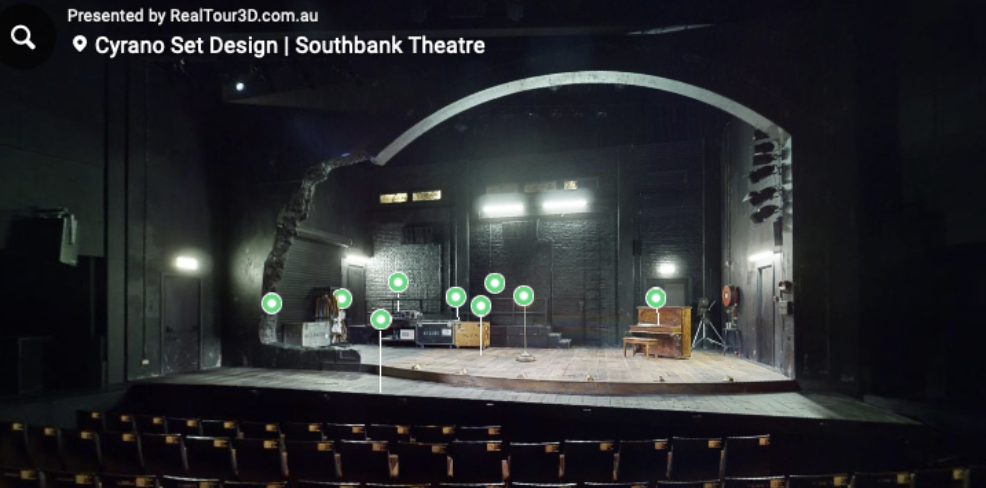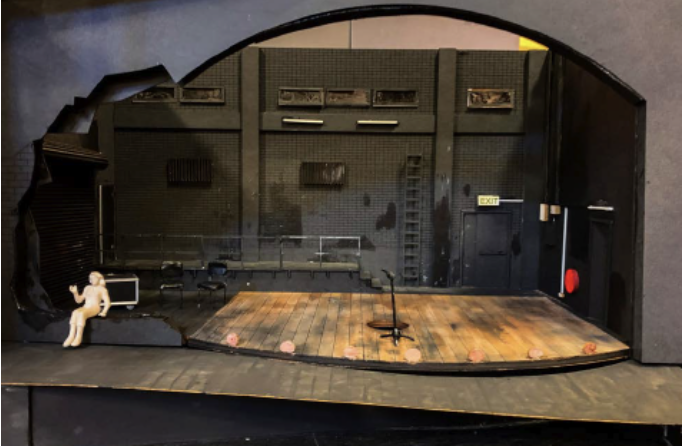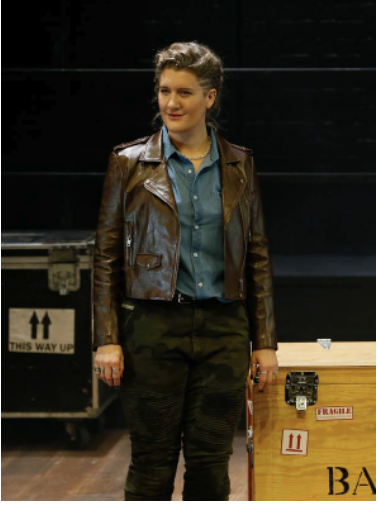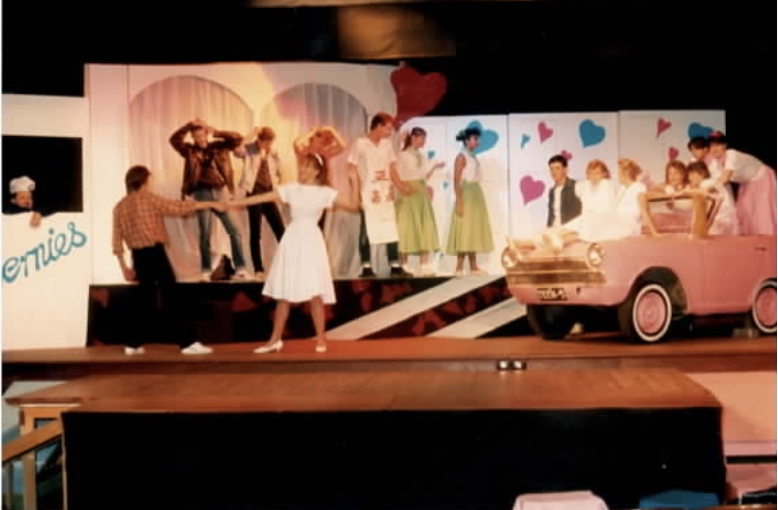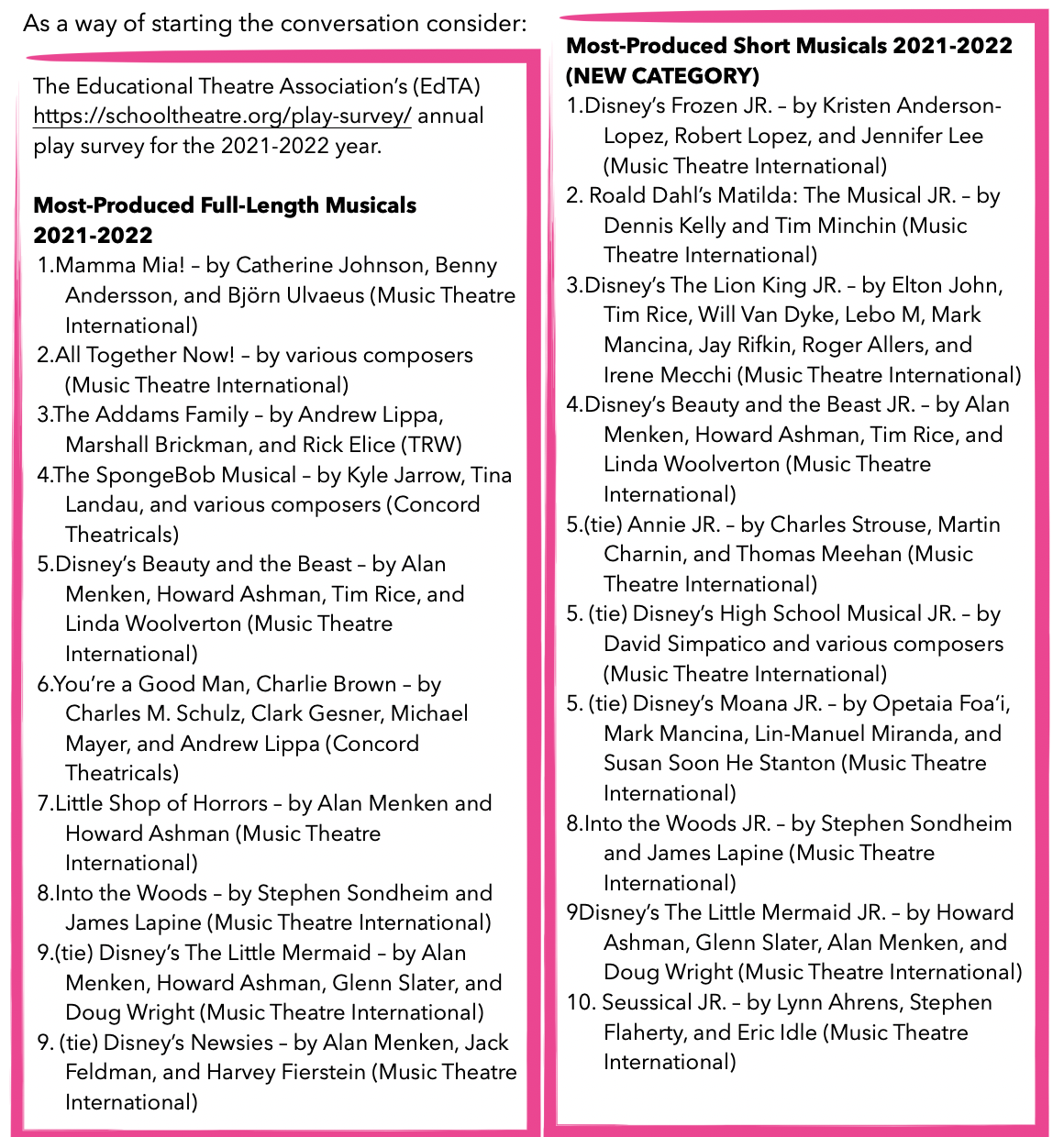Drama Tuesday - Cyrano
/Cyrano
Black Swan State Theatre Company presenting the Melbourne Theatre Company production for The Perth Festival.
So many things to say about this version of Cyrano by Virginia Gay with a free hand on the original by Edmond Rostand. It is a stunning production. Successful on so many levels and loved by the Saturday afternoon audience.
Broken proscenium within proscenium
The most immediate impression is the setting that we saw as we entered the theatre. Inside the wooden proscenium of the Heath Ledger, sits a seedy theatre stage with traditional exposed brick back wall, scatter of props, a ghost light glowing. But one edge of the proscenium is broken, a literal breaking of the fourth wall. We see both the stage, with shell foot lights but at the same time, it is as if we are seeing the inner workings of theatre.
This is a wonderful physical metaphor for what is described as a “love letter to theatre”. What is the “act” on stage? What is “real life”? And holding it all together is a dazzling array of words. This is very much a reminder that we are seeing the play within the play.
Rostand’s play is, above all a river of words, of witty dialogue spoken at a scintillating pace. In “updating” or “adapting” the play for contemporary times, Gay has maintained the flow and force of words. There is true wit in the use of language. Cleverness.
There’s a wonderful 3D visualisation at the MTC web site: https://www.mtc.com.au/discover-more/mtc-now/cyrano-set-design-virtual-tour/
Role reversal
The heart of this interpretation is that Cyrano is a woman and her passionate love interest is Roxanne. As in the original, Cyrano provides the honeyed words for Roxanne’s suitor (here called Yan and played with swagger by Joel Jackson – a Pilbara God), and, as in the original, her words sway Roxanne. But, in a step away from the original, Cyrano wins the heart of Roxanne. In the original, it is only years after, that Roxanne recognises that Cyrano was the true love.
In these more gender fluid times, there are different points being made about the nature of love denied. The portrayal of the vainglorious Yan is cutting.
Not a prosthetic nose in sight
So often, the preoccupation of audiences is the quality and effect of the prosthetic nose adopted for the production. It is after all, the defining feature of how others see Cyrano.
So it is interesting that there is no attempt – beyond words – to endow Virginia Gay’s Cyrano with a physical prosthetic nose.
We are invited to believe that her nose is legendary. Again, we are reminded that theatre is about the “willing suspension of disbelief” rather than the physical actuality. We are again reminded how distorting can be an obsession with “realism” (ironic when so much of realism in film and television is CGI).
What sets Cyrano apart is not the physical but the emotional and imagined impact of self and identity.
There are also enough theatrical surprises – steam bursts, light streaming through opening windows high on the stage wall, bursting explosions of streamers cascading on audiences.
Why do we keep telling the old stories
There is a poignant moment when Cyrano asks this question. It is also one that seems to be the through line question of this version.
Why do we keep telling these old stories? What are the “new” stories?
The chorus – 1/2/3
The blend of theatre types to flesh out the cast – the theatrical flourish ham/the wide eyed ingenue/the clichéd ennui – provides a clever backdrop to the action played out by the three main roles.
In all there is a neat efficiency to the way the writing unfolds the action.
Virtuoso Performance
Cyrano is that peak of lead roles. Virginia Gay gives a stellar performance. Importantly though, the strong ensemble carries and supports the star.
A most malleable and forgiving text
I found myself thinking through with this performance of Cyrano echoes of the original text. Open to interpretation and reinterpretation, the text is rich in language and ideas.
This version jumped about in the sequence and played with us as audience. I did wonder a couple of times if you had to know the original (or versions of the original) to keep up with the dance being played in this version.
There have certainly been plenty of other versions. I could hear the resonances.
Cyrano in Context
In a different century with students from Armadale SHS John Foreman Liz and I crafted our own version of this malleable material. Cast as a 60s teen drama with appropriated pop songs, the material worked for 80s kids. Our Cyrano had a rougher texture. We liberally played with text but also stayed faithful to the shape. Particularly satisfying was the use of the Don McLean song “America Pie” to bridge to the final scene when Roxanne realised Cyrano’s role in her wooing. The poignant themes of the day the music died worked well for us and our actors and audiences.
I still see value in working with this text and young people. The romantic conceits resonate with adolescence and there are opportunities to play with language and theatricality. I would love to see this latest version published and made available for study in schools. It is accessible and fun.



